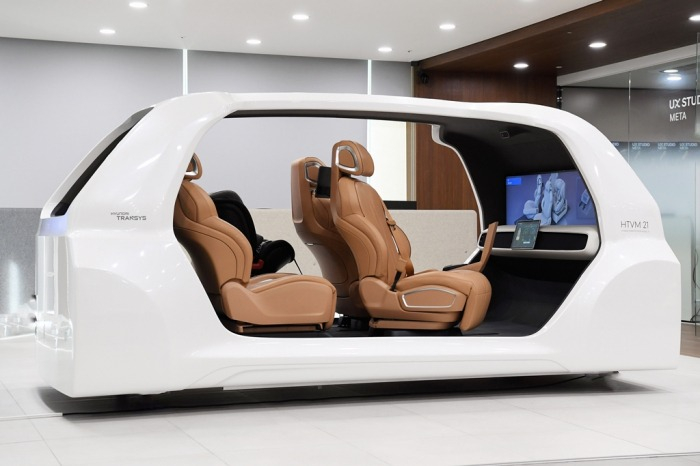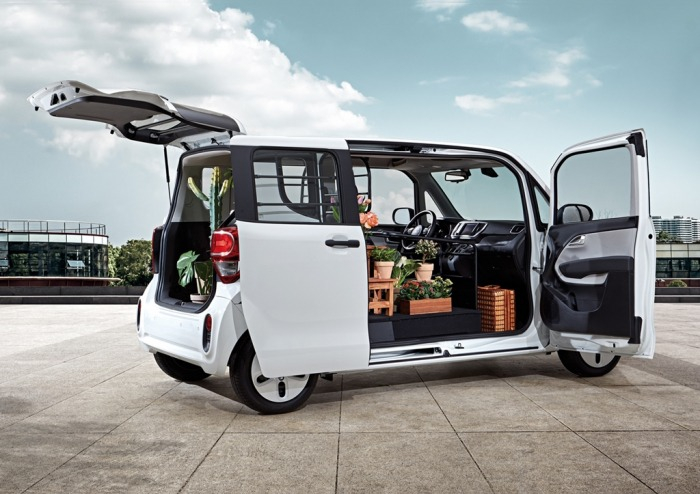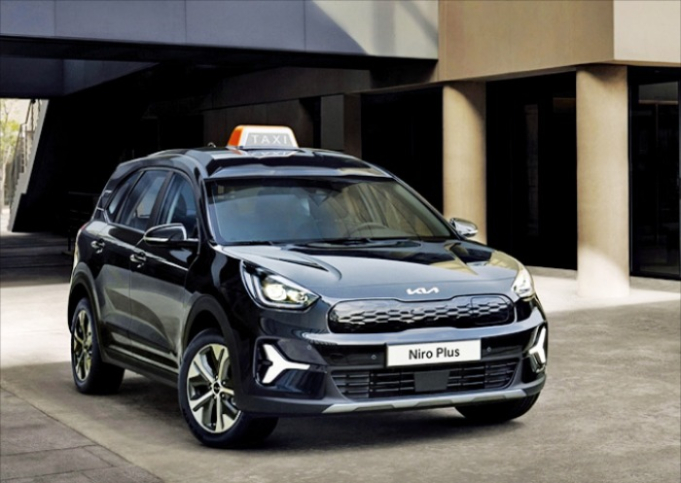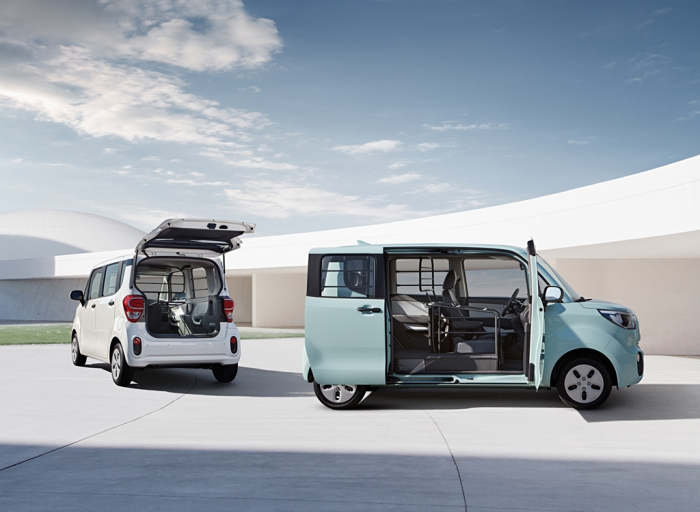Hyundai Motor eyes purpose-built vehicle market entry
Its first PBVs will target logistics and delivery companies
By Sep 15, 2023 (Gmt+09:00)
Hankook Tire buys $1 bn Hanon Systems stake from Hahn & Co.


NPS to hike risky asset purchases under simplified allocation system


UAE to invest up to $1 bn in S.Korean ventures


Osstem to buy BrazilŌĆÖs No. 3 dental implant maker Implacil


US multifamily market challenges create investment opportunities



Hyundai Motor Co. has launched a task force team to study its foray into the purpose-built vehicle (PBV) market, in which its sister company Kia Corp. has vowed to become the largest player by 2030, according to Hyundai and automotive industry officials on Friday.
Hyundai, South KoreaŌĆÖs largest carmaker, recently set up a Cross Functional Team (CFT) at its Ulsan plant, its first task force dedicated to producing PBVs with automated technologies.
ŌĆ£CFT was launched to study our PBV business feasibility,ŌĆØ said a Hyundai official.
Its first PBVs will target the logistics and delivery industries. Hyundai will run the CFT for about four years to test the models at an idle site of the Ulsan plant.
By doing so, it will assess the profitability of the PBV business and make a final decision on whether to proceed with the business.

PBV is drawing attention as the automobile market paradigm shifts toward electric vehicles.
Depending on what is placed on the EV platform, it can be manufactured in various forms such as passenger cars, trucks and taxis.
In particular, when combined with autonomous driving technology, it can be applied to a number of areas, such as in robotaxis, unmanned cargo transportation and moving offices, as well as in hotels and hospitals.
According to Hyundai Motor Group, the global PBV market is expected to grow by an average of 33% a year to 1.3 million units by 2025, compared to 320,000 units in 2020.
KIA AT THE FOREFRONT
KIA is leading Hyundai Motor Group's PBV drive.
In April this year, it broke ground on its first electric PBV factory at its Hwaseong complex, south of Seoul. The same month, at its Investor Day, Kia picked PBVs as one of its four strategic businesses over the medium to long term.
It aims to sell 1 million PBVs annually by 2030, when it expects PBVs to account for about a quarter of its cars sold globally.

KiaŌĆÖs PBV business consists of ŌĆ£derivative PBVsŌĆØ for mass production and ŌĆ£dedicated PBVsŌĆØ based on a dedicated platform, which enables various types of vehicle bodies to be flexibly combined.
The taxi-only Niro Plus, which Kia introduced last year as its first PBV model, is a type of derivative PBV.
Kia also has unveiled various derivative PBV models such as refrigerated trucks, based on its electric minivans.
Kia will commence commercial production of PBVs from the second half of 2025, by when its first PBV plant is expected to be up and running with an annual capacity of 100,000 units.
The plant will produce a full lineup, from small to large-sized models, to develop PBVs optimized for each industry using a customer-participation development process.

Kia has already signed business agreements with Coupang Inc., CJ Logistics Corp. and Lotte Global Logistics Co. to build custom-tailored vehicles for product delivery.
Competition among automakers is intensifying in the global PBV market.
General Motors Co. and Toyota Motor Corp. have already advanced into the market. Ford Motor Co. and Stellantis N.V. are looking to join them.
Industry officials predict PBVs will account for about a quarter of new cars sold globally by 2030.
Write to Sungsu Bae at Baebae@hankyung.com
┬Ā
Yeonhee Kim edited this article.
-
 LogisticsKia, Lotte Global Logistics to develop logistics-specific PBV
LogisticsKia, Lotte Global Logistics to develop logistics-specific PBVSep 06, 2023 (Gmt+09:00)
1 Min read -
 AutomobilesKia scouts ex-Stellantis executive Pierre-Martin Bos as PBV director
AutomobilesKia scouts ex-Stellantis executive Pierre-Martin Bos as PBV directorJul 11, 2023 (Gmt+09:00)
2 Min read -
 Future mobilityKia, Kakao Mobility to jointly develop PBV for ride-hailing
Future mobilityKia, Kakao Mobility to jointly develop PBV for ride-hailingMay 12, 2023 (Gmt+09:00)
1 Min read -
 AutomobilesHyundai to spend $18 bn on EVs; Kia breaks ground on first PBV plant
AutomobilesHyundai to spend $18 bn on EVs; Kia breaks ground on first PBV plantApr 11, 2023 (Gmt+09:00)
3 Min read -
 AutomobilesHyundai Group unveils purpose-built vehicle for airport pickup
AutomobilesHyundai Group unveils purpose-built vehicle for airport pickupSep 19, 2022 (Gmt+09:00)
1 Min read


